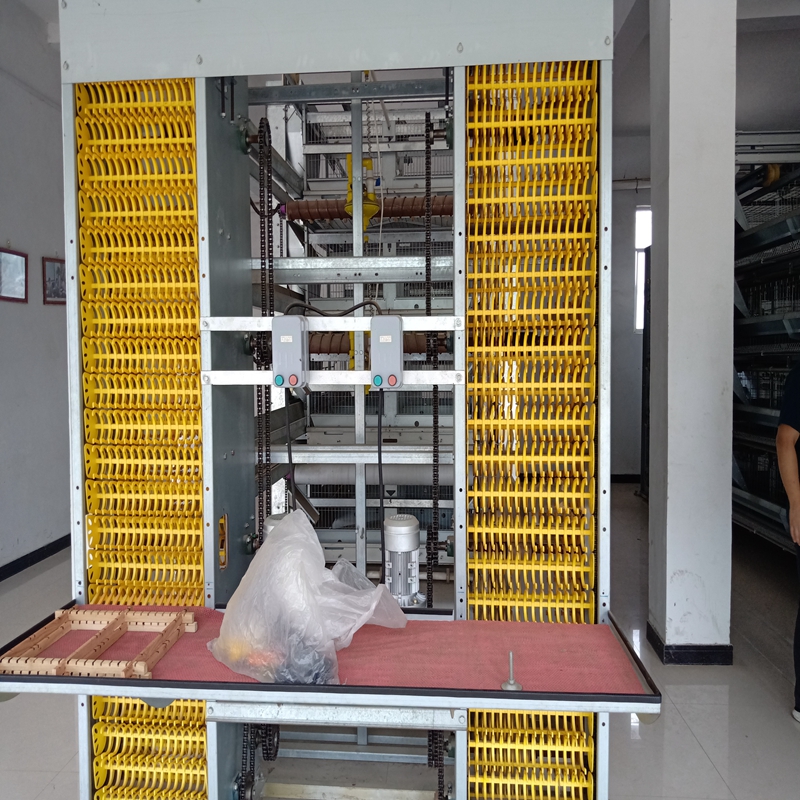Exploring the Impact of Broiler Battery Cages on Poultry Farming and Animal Welfare Practices
Aug . 13, 2024 09:00 Back to list
Exploring the Impact of Broiler Battery Cages on Poultry Farming and Animal Welfare Practices
The Rise and Controversy of Broiler Battery Cages
The poultry industry has undergone significant transformations over the last few decades, primarily driven by the increasing demand for chicken meat and eggs worldwide. One controversial method of poultry farming that has emerged is the use of broiler battery cages. These cages are designed to maximize space and minimize costs for producers, but they have raised serious concerns regarding animal welfare, environmental impact, and food safety.
Understanding Broiler Battery Cages
Broiler battery cages are enclosures in which chickens are kept for their meat production. Typically, these cages are stacked in multi-tier systems, allowing for a large number of birds to be raised in a compact area. These cages often restrict the natural movement of the birds, as they are designed to house several chickens closely together, limiting their ability to roam, spread their wings, or engage in natural behaviors.
Proponents of battery cages argue that they improve operational efficiency by reducing the space required per bird, which helps to lower production costs. The intensive farming approach can lead to higher yields and quicker turnaround times, contributing to the global supply of chicken. Additionally, the controlled environment of these cages helps protect birds from some diseases, making it easier to manage health issues.
Animal Welfare Concerns
Despite the economic advantages, the use of broiler battery cages has sparked intense ethical debates. Animal welfare advocates argue that these cages are inhumane and contribute to physical and psychological distress in chickens. Birds raised in overcrowded and confined conditions are more susceptible to stress-related disorders, feather pecking, and aggressive behavior. Critics emphasize that chickens, like all animals, experience feelings and stress, and their needs for space and social interaction should not be overlooked.
broiler battery cages

As awareness of these issues grows, many consumers are demanding more humane farming practices. This shift in consumer sentiment has prompted some poultry producers to reevaluate their methods. In response to public outcry, various countries and regions have implemented regulations to improve the living conditions of farm animals, leading to a gradual phase-out of traditional battery cages in favor of more spacious alternatives, such as free-range systems and enriched cages.
Environmental Impact
The environmental sustainability of broiler battery cages is another area of concern. Intensive poultry farming can lead to significant waste management challenges, including pollution from manure and the overuse of antibiotics in crowded conditions. These practices can contribute to environmental degradation, affecting soil and water quality. Additionally, the high demand for corn and soy to feed these birds can lead to deforestation and loss of biodiversity.
To mitigate these concerns, some in the industry are exploring alternative farming practices that reduce carbon footprints and promote sustainable livestock management. This includes improved waste management systems and the adoption of organic farming practices that prioritize animal welfare and environmental health.
Conclusion
The debate over broiler battery cages epitomizes the tensions between agricultural efficiency and ethical considerations in animal farming. As consumers become increasingly aware of animal welfare and environmental sustainability, the poultry industry must adapt by finding a balance that meets ethical standards while also ensuring food production needs are met. Continuous dialogue among farmers, consumers, and policymakers is crucial in shaping the future of poultry farming, with a focus on humane practices and sustainable development. The evolution of broiler production will undoubtedly continue to unfold as society strives towards creating a more compassionate and environmentally-aware food system.
-
Hot Sale 24 & 18 Door Rabbit Cages - Premium Breeding Solutions
NewsJul.25,2025
-
Automatic Feeding Line System Pan Feeder Nipple Drinker - Anping County Yize Metal Products Co., Ltd.
NewsJul.21,2025
-
Automatic Feeding Line System Pan Feeder Nipple Drinker - Anping County Yize Metal Products Co., Ltd.
NewsJul.21,2025
-
Automatic Feeding Line System - Anping Yize | Precision & Nipple
NewsJul.21,2025
-
Automatic Feeding Line System - Anping Yize | Precision & Nipple
NewsJul.21,2025
-
Automatic Feeding Line System-Anping County Yize Metal Products Co., Ltd.|Efficient Feed Distribution&Customized Animal Farming Solutions
NewsJul.21,2025






